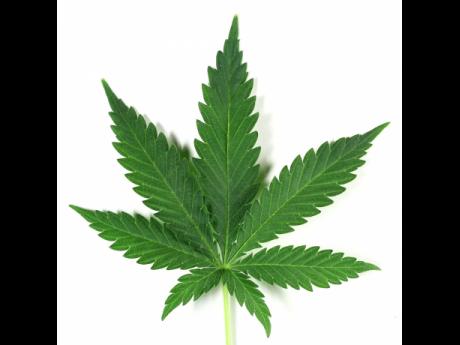Christopher Tufton | Clearing the smoke on ganja
This is an extract from the speech delivered at the launch of Medicanja products in Kingston, Jamaica, last month.
With the recent launch of a number of Medicanja products, ganja is once again making news headlines. And rightly so. It is an opportune time for a national discussion on the subject, as Jamaica looks to make a name for itself in the medicinal ganja market.
The Ministry of Health supports Jamaica's entry into this market. At the 70th World Health Assembly in Geneva last year, I made a submission to remove ganja - also called 'cannabis' and 'marijuana', among other names - from its current classification as a Schedule 1 Drug (illegal drug) deemed to have no medicinal benefits to a schedule that reflects its important potential for medicinal use.
The removal of ganja from its current classification is an important step in facilitating efforts by countries, such as Jamaica, to promote its medicinal uses while maintaining a sound public-health approach.
The ministry has also established a Medicinal Cannabis Unit, which has, to date, registered 61 medicinal cannabis products, and is also currently involved in the development of ethical guidelines for cannabis research.
To be clear, I, as the minister of health, and the team at the ministry are paid to be cautious of new discoveries and inventions - no matter how beneficial they may at first appear. It is critical that we take this approach because while a financial risk may cost money, a public-health risk may cost lives.
The medicinal benefits to be derived from ganja must, therefore, be backed by scientific evidence; tried and tested research that builds on the efforts of the likes of the late Professor Manley West, who did groundbreaking work on the ganja plant, leading to the development of medicines for ailments, including glaucoma.
The research is also critical if Jamaica stands any real chance of proving itself a credible forerunner in the global medicinal ganja industry, which is impossible to do in the absence of a sound public-health approach.
RESEARCH AND DEVELOPMENT VITAL
Work on medicinal ganja is evolving and, as a consequence, there are going to be obstacles; there are going to be questions, necessitating the need to test, retest and validate.
At the Ministry of Health, we see ourselves as enablers of the process, bearing in mind our responsibility to advance solutions to the public-health concerns of our people. However, we must take a balanced approach, ever mindful not to confuse the discussion on medicinal ganja with the discussion on its recreational use.
I cannot overemphasise the need for ongoing public education. Where there are medicinal benefits to be derived from ganja, it is also a substance with psychoactive properties that have the potential for significant and sometimes long-lasting, negative health consequences and mental-health complications, especially among the young.
The recent Conference of Heads of Government Meeting of CARICOM saw the tabling of the CARICOM Regional Commission on Marijuana 2018 report. That report, which represents an attempt by CARICOM governments to regularise and establish standards that would flow throughout the region in terms of the approach, is a positive step.
The report is also quite clear that even while we champion the development of the medicinal ganja industry and seek to exploit its potential, we have also to approach it based on a recognition of certain realities. These realities include that:
- There is conclusive evidence that exists for the negative effect on the adolescent brain and on driving;
- Ganja use in children may affect memory, learning and attention and may put youth at risk for early onset of psychosis.
- The adolescent brain is not fully developed before the age of 24 years, which makes it susceptible to the effects of ganja.
Further, there is a convincing body of literature that recent use affects several domains of cognition, such as memory, attention and learning, and that these effects appear to persist even after the drug is stopped.
In addition, in regard to psychotic disorders, such as schizophrenia, the emerging consensus is that cannabis may advance the age of psychosis in high-risk individuals, such as those with genetic vulnerability.
It is not surprising, therefore, that when you look at countries that have advanced medicinal ganja, among them Israel and now Canada, the industry is lodged in the health portfolio. That premise begins the process of ensuring that the ethical protocols of the industry are established, maintained and then projected.
This requires that we establish ourselves in a manner that hits the best practices early, grounding our efforts in research while maintaining clarity as to the pros and the cons of the industry, thus effectively preparing ourselves for what, I believe, is not just the opportunity ganja represents today, but also the opportunity it represents in the years to come.
I believe we have a winner, and we can make it work. However, we must satisfy the various facets of true research in order to produce a value proposition that is appropriately branded and can be positioned in what is sure to be an increasingly competitive market.
- Dr Christopher Tufton is the minister of health. Email feedback to columns@gleanerjm.com.




